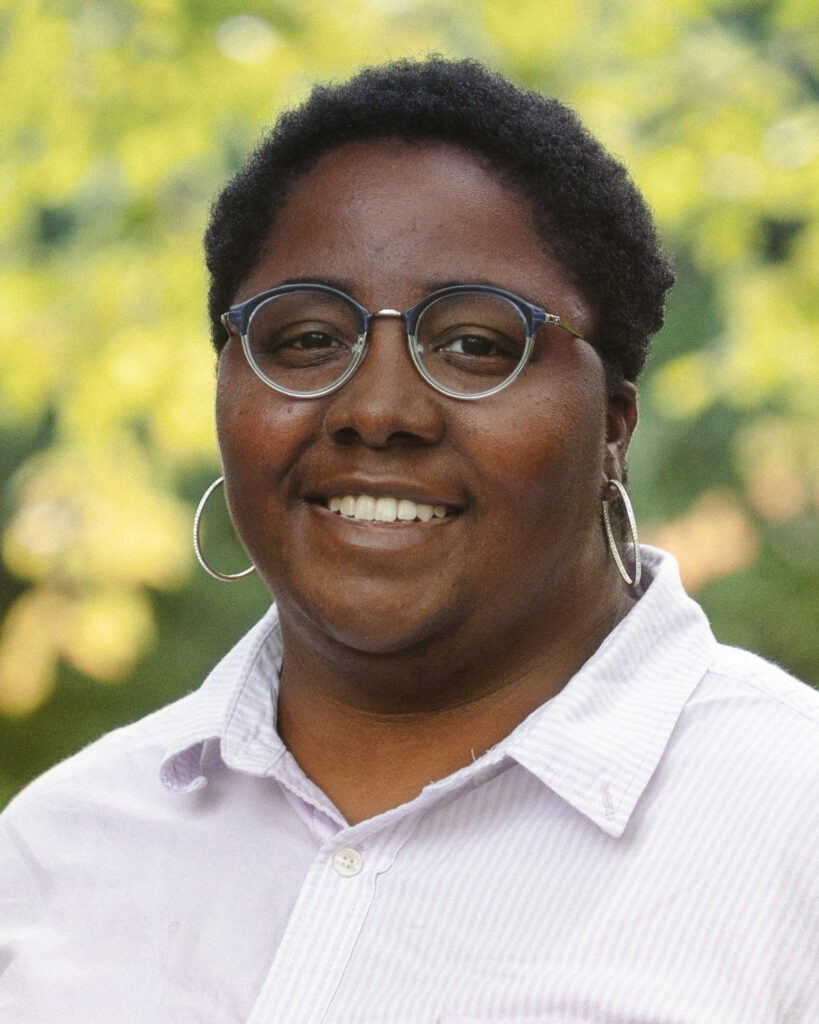
Racquel first learned about Peace Hill through a retreat led by Poet Laureate Jaki Shelton Green. “I was pretty new in my role as a minister at Duke Chapel at the time and I was really craving a space for some quiet time of reflection. I was intrigued to attend a retreat led by a poet,” she said. “Attending that retreat was beautiful for me as it allowed me to meet so many folks affiliated with Peace Hill, most notably Mr. Phil Mathews and Rev. Dumas Harshaw.”
Racquel came to value the Peace Hill community as she attended additional events and became further acquainted with board members. An invitation from Phil Mathews led her to join as a board member, though she was also drawn to the emerging focus of Peace Hill, represented by a talk from Cole Arthur Riley.
“That night at Mt. Level, we saw people of various races, genders, ethnicities, and across generations show up on a Friday to hear from a Black queer woman about the contemplative life,” she said. “Joining the board felt important for me because in our current world I feel that emerging generations will need to have pathways to institutions and communities that can help them explore their own interior lives. To put it plainly, for as much as we need Peace Hill now, I believe we will need spaces like Peace Hill even more in the future.”
Racquel believes that Peace Hill’s work must become increasingly intergenerational and hopes that by serving as a board member, she can help broaden Peace Hill’s reach and scope as a resource for organizations seeking to offer contemplative and restorative practices to their members. She hopes that Peace Hill will grow as a conduit in community organizing, facilitating connections with activists working toward a more compassionate and just society.
“My ultimate hope for Peace Hill is that it will fully live into its mission and grow deeper in the work of coordinating and collaborating with leaders and activists to integrate contemplative practices into training for social action and community organizing,” she said. “While the work we do is phenomenal, in this current climate, I think it is paramount to center the wellness of those on the front lines of labor movements, activism, and community organizing. It is paramount to center the cares and concerns of Black, Brown, Indigenous, and working-class people in Durham and find avenues to partner with them in working towards a more just world.”
